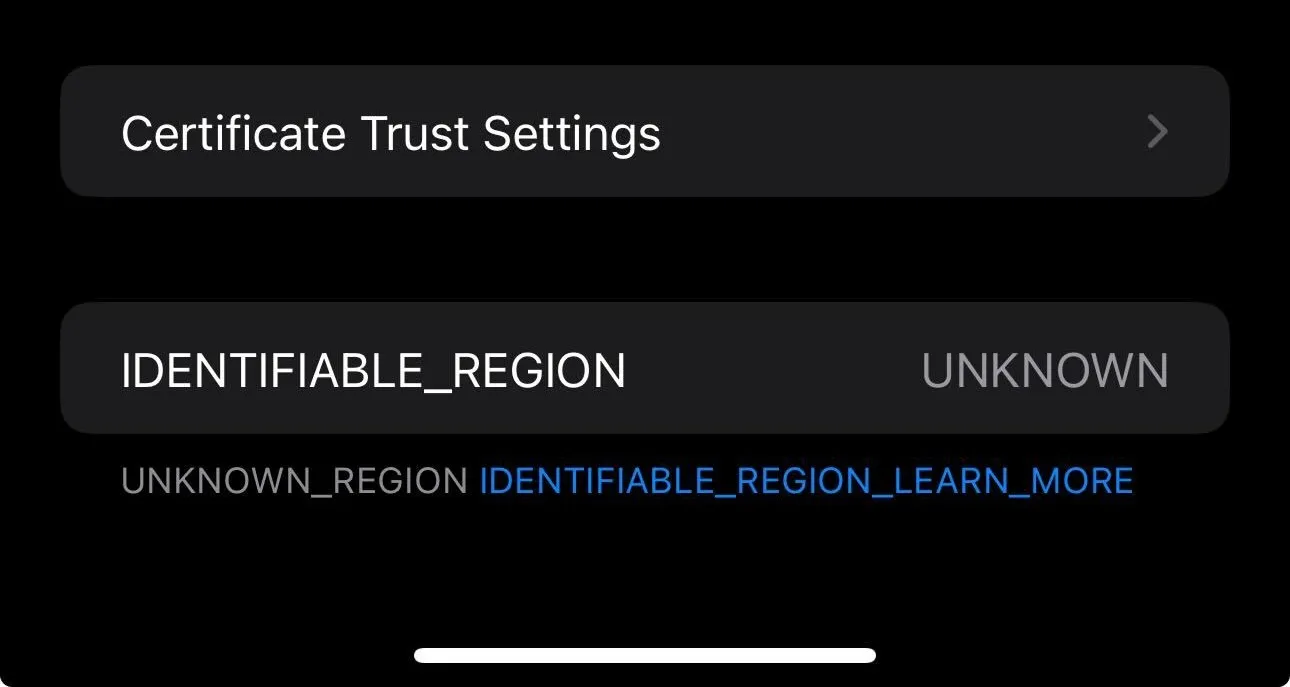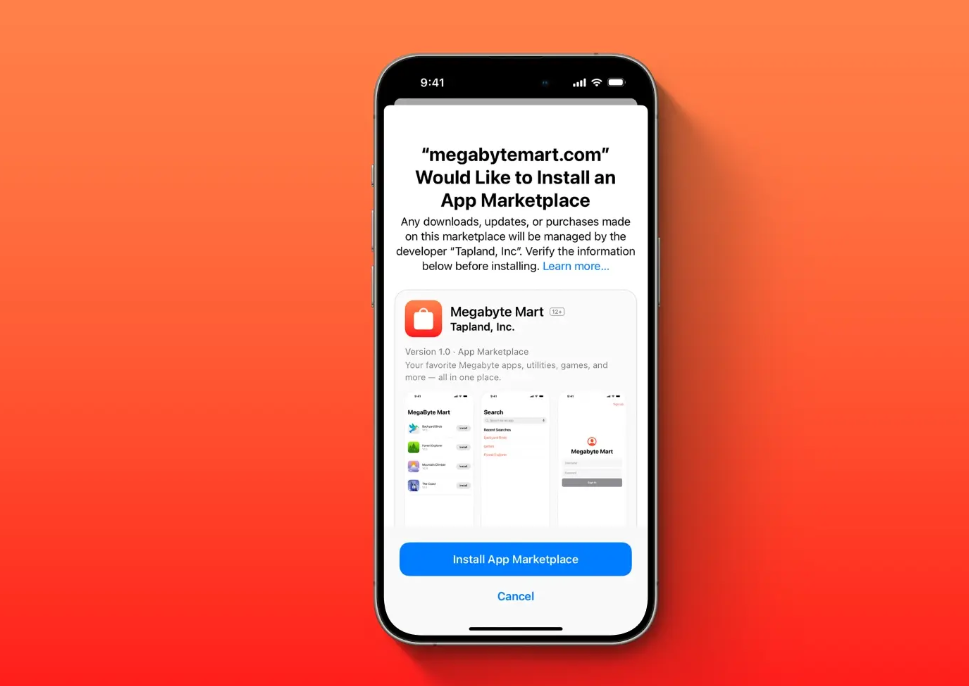Highlights
- iOS 17.4 beta introduces iPhone sideloading in compliance with DMA.
- Regional restrictions limit sideloading to European users.
- ‘Identifiable_Region’ feature and Apple ID checks control sideloading access.
- MarketplaceKitBridge API key to enabling third-party app stores in EU.
Apple’s latest iOS 17.4 beta rollout introduces support for iPhone sideloading and compliance with the Digital Markets Act (DMA) requirements.
However, this feature comes with specific regional restrictions, limiting its accessibility to European users in alignment with the DMA legislation.
Navigating the Restrictions of Sideloading in iOS 17.4 Beta

The implementation of sideloading in iOS 17.4 is restricted to Europe, and Apple has put in place measures to ensure that these features remain exclusive to European users.
According to an analysis by 9to5Mac of the iOS code, Apple will use several criteria to determine a device’s eligibility for sideloading:
- Apple ID Billing Address: Apple checks the Apple ID billing address associated with the user’s account. This makes it challenging to bypass restrictions as international users would need to create a new Apple ID with a valid European address and payment system.
- User’s Current Location and Region Settings: The user’s current location (country level) and the region set in iOS settings play a crucial role in determining eligibility. Apple emphasizes privacy by not requiring precise location details.
- Device Class: The type of device (iPhone, iPad, etc.) is also considered in the eligibility criteria.
‘Identifiable_Region’ Feature in iOS 17.4 Beta

A notable addition in the iOS 17.4 beta is a new section in the ‘About’ menu of the Settings app, labeled ‘identifiable_region.’
This section will indicate the region where the iPhone is currently in use. As of the beta version, this feature is present but not fully operational.
MarketplaceKitBridge and Future of Sideloading

The inclusion of the ‘MarketplaceKitBridge’ in the iOS 17.4 beta is a crucial element for enabling third-party app stores or marketplaces in the EU.
This API, initially thought to be connected to sideloading or Mobile Device Management (MDM), will facilitate the functioning of alternative app stores on iPhone within the European Union.
As iOS 17.4 remains in beta, it’s important to note that Apple may modify its approach to determine eligibility for sideloading and related features.
FAQs
What is sideloading in iOS 17.4 beta, and who can access it?
Sideloading in iOS 17.4 beta allows installing apps from third-party sources. This feature, however, is regionally restricted to European users to comply with the Digital Markets Act (DMA).
How does Apple ensure sideloading is restricted to European users?
Apple employs criteria like the Apple ID billing address, user’s current location at the country level, and the device class to determine eligibility for sideloading in the iOS 17.4 beta.
What is the ‘Identifiable_Region’ feature in iOS 17.4 beta?
‘Identifiable_Region’ in iOS 17.4 beta, found in the Settings app, indicates the current regional use of the device, playing a role in enabling sideloading for users in the EU.
Can international users bypass the sideloading restrictions in iOS 17.4 beta?
Bypassing sideloading restrictions in iOS 17.4 beta is challenging due to the stringent checks, including the need for a valid European Apple ID billing address.
What does iPhone app sideloading mean under the EU’s DMA?
Sideloading on iPhones, as influenced by the EU’s Digital Markets Act (DMA), refers to the ability for users to install apps from sources outside the official Apple App Store.
This regulatory change is aimed at breaking Apple’s tight control over app installations, providing EU users with more flexibility and choice.
Will sideloading be available for iPhones globally?
Currently, the allowance for sideloading apps on iPhones is expected to be confined to the 27 EU member countries, in line with the DMA’s jurisdiction.
This means that outside these nations, Apple’s traditional app installation methods via the App Store will likely remain unchanged.
What are the potential risks of sideloading for iPhone users?
Sideloading apps can potentially expose users to increased security risks, such as malware and trojans.
With this new policy, iPhone users in the EU will bear more responsibility for ensuring the safety of the apps they install from non-App Store sources.
How does app sideloading benefit iPhone users and developers?
This change benefits users by offering a wider range of app choices and potentially promotes innovation by allowing developers to reach users directly without App Store constraints.
It also helps smaller developers who might find it challenging to comply with App Store policies.
What are the key changes Apple is making in the EU to comply with the Digital Markets Act?
Apple is rolling out significant updates in response to the EU’s Digital Markets Act, including the introduction of new APIs, alternative app marketplace and payment processing options, and revised functionality for browser engines.
How will Apple’s changes impact app developers and marketplace options in the EU?
Developers will now have access to new tools and APIs for creating alternative app marketplaces, utilizing different browser engines, and managing app updates, significantly expanding their capabilities within the EU market.
What security measures is Apple implementing in light of these changes?
To counter potential risks from more open platforms, Apple is introducing safeguards like app Notarization and required authorization for marketplace developers, aiming to protect users from malware and other security threats.
Will Apple’s compliance with the DMA affect user experience in Safari and the App Store?
Yes, users in the EU will notice changes such as a new default browser choice screen in Safari and additional payment options in the App Store, though some existing features like Family Sharing might not be compatible with externally downloaded apps.
Also Read: EU’s DMA Pushing Apple to Enable App Sideloading on iPhones
Also Read: Apple Announces iOS, Safari, and App Store Changes in EU to Comply with DMA
